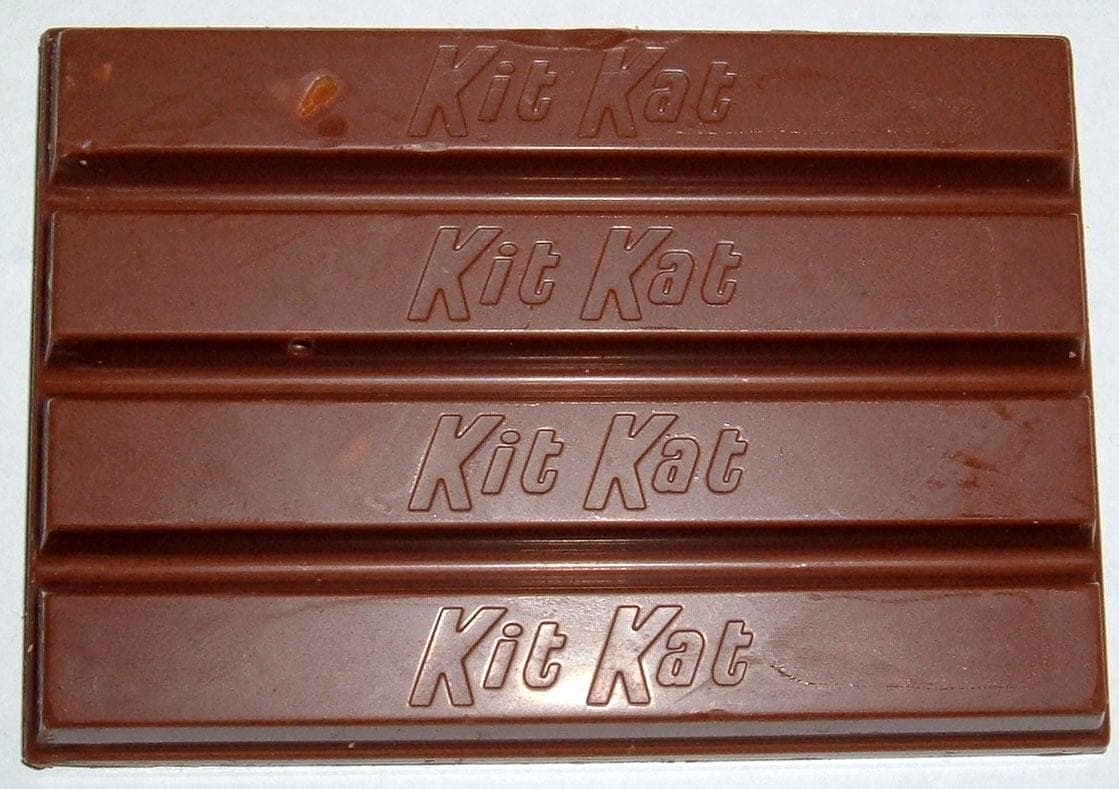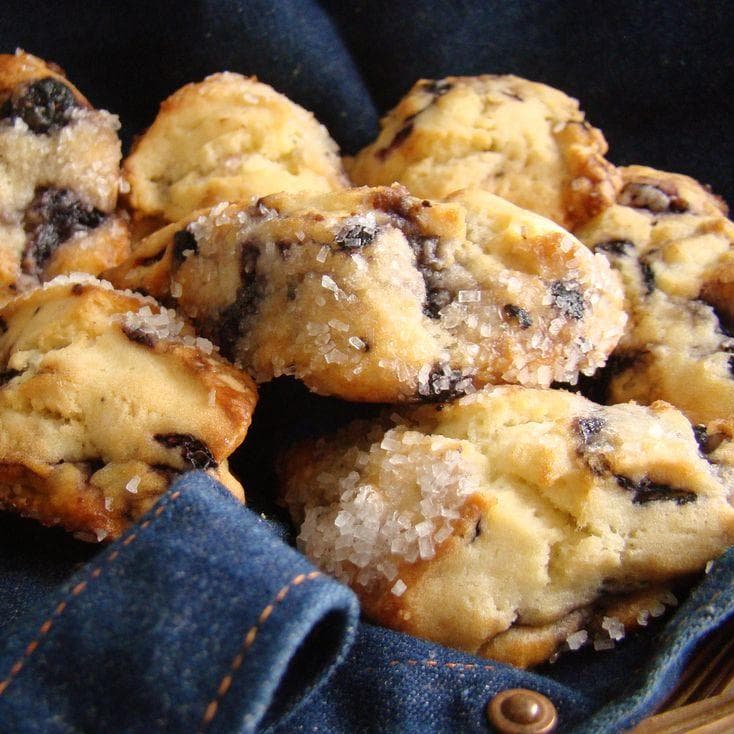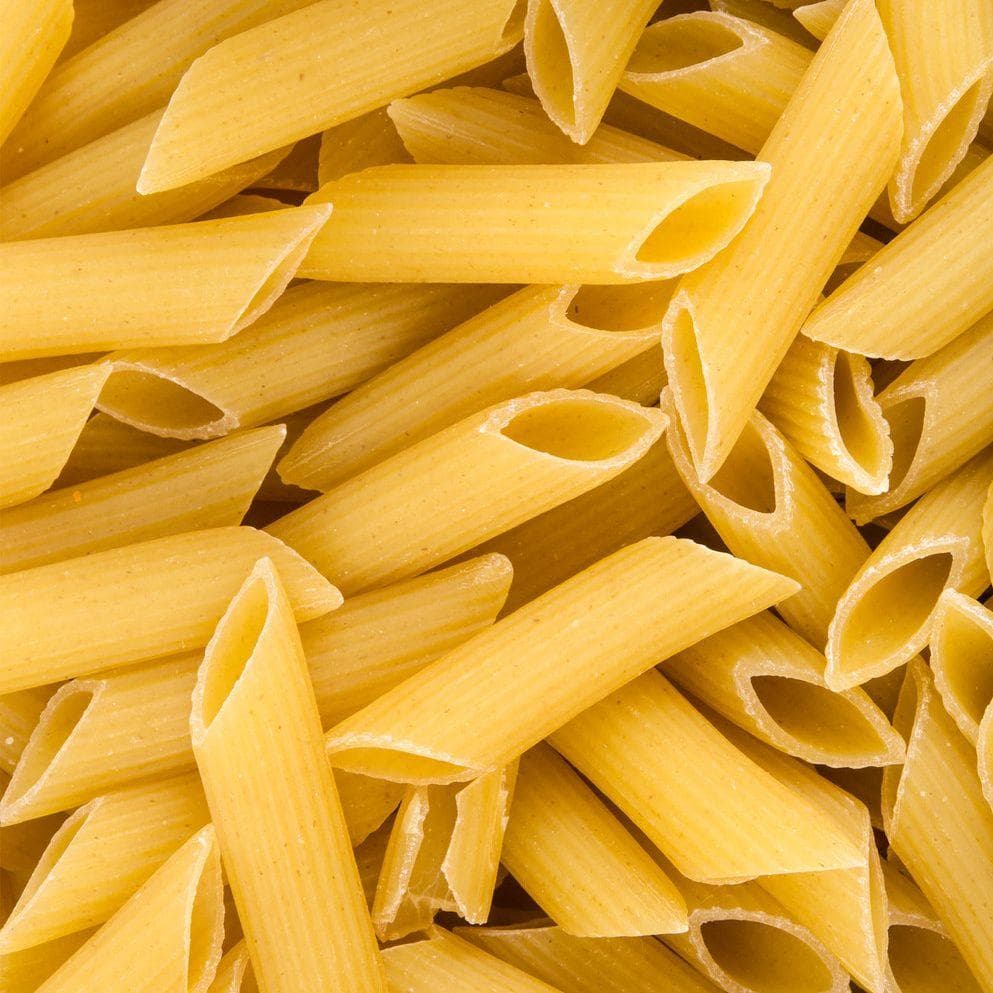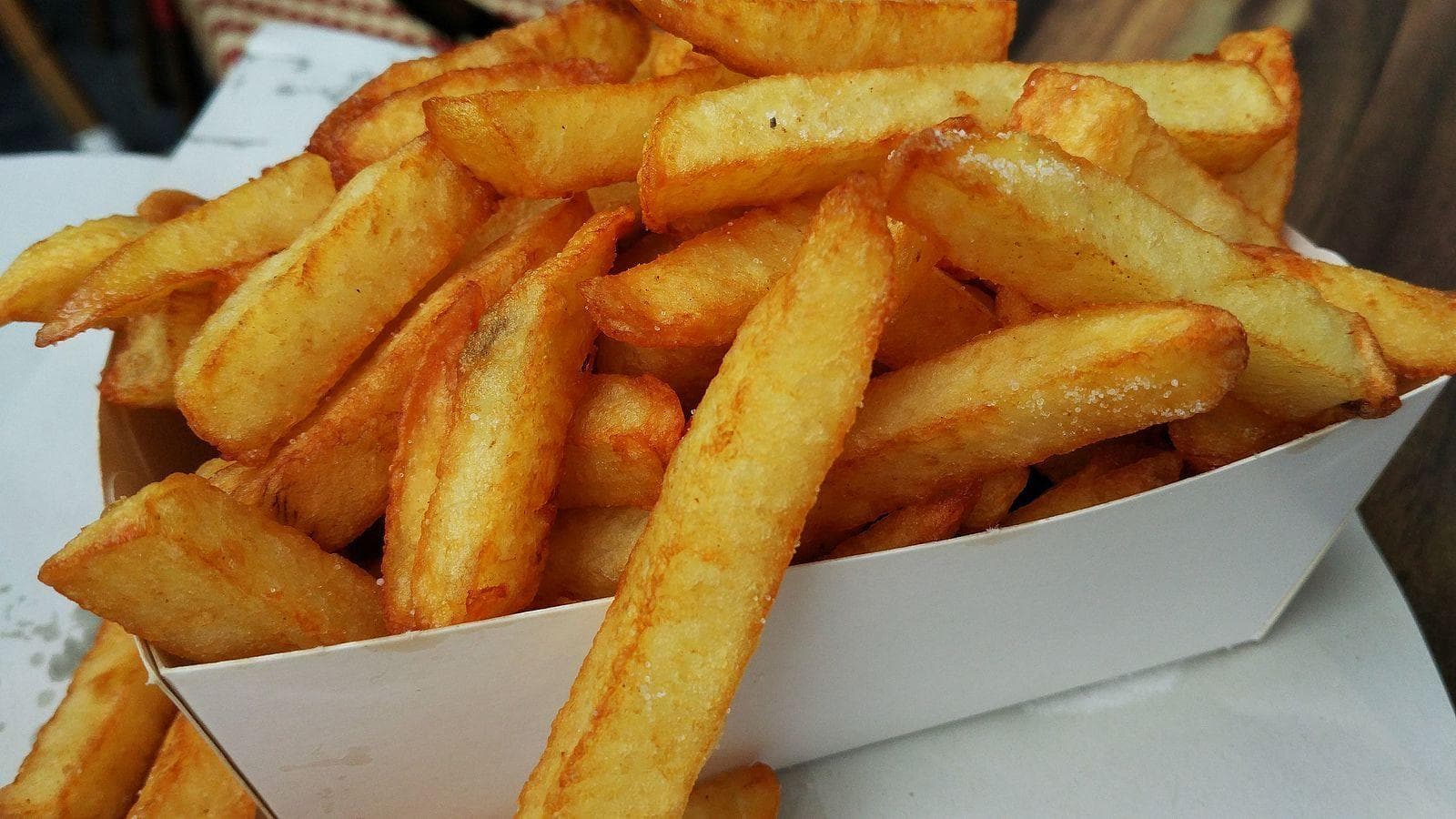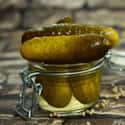-
(#1) Refrigeration
Refrigeration has gone through many phases. From storing food in cool underground spaces to iced train cars and finally to the electric appliance we use today (which first arrived in 1927), this invention has done wonders for allowing us to preserve food for longer. This has allowed us to keep meat, dairy, and other perishable food around, and has become a necessary household appliance throughout the world. -
(#2) Cooking with Fire
We don't exactly know who first did it or when, but we've found evidence of man cooking with fire dating from over one million years ago. Cooking with fire meant that we could eliminate lots of harmful bacteria in our food and enabled us to keep meat and produce longer. Man making fire may have been one of the greatest innovations in the history of humankind, but learning to cook with it was a brilliant next step. -
(#3) Irrigation
This is one innovation we have to give credit to the Egyptians for. They first irrigated crops back in 6000 BC, using floodwater as a means of watering plants at preferred times. Irrigation evolved from there; we can see the improvements in our agricultural industry. Irrigation meant that we could grow crops all year long, so we were better fed and healthier for longer. Not to mention, this kind of farming became a major industry we're still relying on today. -
(#4) The Use of Salt
Dating back as far as 6050 BC, the use of salt in cooking and food preservation has had a massive impact on our world. Salt is necessary to the human diet and being able to add it to food made us healthier as a species. Not to mention it can be used to dry and preserve food for later consumption, which helps prevent people from going hungry. It's no wonder that wars have been fought over this food, and we have China to thank for our modern methods of salt extraction. -
(#5) Bottles and Corks
We may have been storing food and liquid in earthenware containers for quite some time before this, but bottles and corks were definitely the storage method of the future. In 1500 BC, the first glass containers were made, and soon after came corks to seal the bottles. These sealed containers meant we could transport liquids - particularly wine - better and keep them for longer. It also meant we could preserve things, sometimes for several decades. The fact that we still use corks today speaks to how effective and important they have been to our world. -
(#6) The Oven
If cooking with fire was a major step, the next logical step was the oven. This innovation, which dates back to over 6,500 years ago, used heat from a fire to cook food uniformly. This meant we could make things like bread and pastries, and also meant we could better cook meat and produce. Ovens also often heated the home, meaning that they had multiple uses in keeping our diets healthy and our dwellings warm. -
(#7) Pasteurization
Pasteurization is a chemical process invented by Louis Pasteur that uses heat to destroy pathogens in foods. In short, it makes our food healthier and less likely to get us sick. Originally, this was used in experiments with wine, but it is now widely used in the dairy industry to give us longer lasting, healthier, and safer milk. Without pasteurization, many products would not be as safe or accessible as they are now. -
(#8) Rotating Crops
Crop rotation means that different crops are grown on the same land in succession, either in order to change with the seasons, to maintain soil integrity, or to get the highest produce yield. This process dates back to 6000 BC, though it was not fully understood until more recently. This method is still practiced in many parts of the world and has enabled farmers to produce a steady supply of food and a greater variety of crops. -
(#9) Processing Sugar
We're not certain who first cultivated sugar, but it is thought that the people of the Polynesian Islands first used it over 5,000 years ago. Sugar was originally traded as a luxury. This international food trade lead to the colonization of many nations and even lead to wars and the discovery of new lands. Not to mention, without sugar we would not have cakes, sweets, or confections, so there's always that benefit too. -
(#10) Fermentation
Alcohol may not seem like the most important thing in the world, but as a method of preservation, fermentation could not be more important. Fermentation not only makes beer, but it can also be used to make longer lasting and sometimes healthier food, and has been used as far back as 6000 BC. The later development of distillation, which created a stronger and more pure alcohol, is not only vital to many scientific developments, but also much better alcohol for drinking and preservation. We would never have discovered distillation without first having fermentation. -
(#11) Pots and Pans
Originally, mankind cooked by stringing up animal skins full of food or liquid over a fire, but that was hardly effective. Over time, we created a better cooking instrument, with the Neolithic people using clay pots to make stews. Once the bronze age showed up, pots and pans became more commonplace, and they are still used in cooking today. Using the earliest pots, we were first able to boil and purify water, which kept us safe from harmful microbes which before had sickened and killed us. -
(#12) The Thresher
Way back when, farmers had to harvest crops by hand, which would take a long time and was sometimes needlessly wasteful. Then, Andrew Meikle, a Scottish engineer, created this contraption that could harvest crops for you in the 1780s. This meant that grains, in particular, could be harvested, separated from the chaff, and prepped for use much sooner and more efficiently than when it was done by hand. The grain industry and our health have flourished with the help of these threshing machines. -
(#13) Fishing Hooks and Nets
For those people that weren't farmers or crop-growers, much of their livelihood came from the sea. Especially for island nations, the sea was a big source of nutrients. Of course, things were made infinitely easier once mankind figured out how to catch fish over 20,000 years ago, and how to catch lots of fish with nets around 8000 BC. Though our technology has progressed, this was the beginning of great success for people who lived off of the sea. -
(#14) Canning
Preserving food in glass containers may have started with bottling, but this method of food preservation became a staple of many households. Nicolas Appert first preserved food through canning for the French Navy in the early 1800s so they could have food that lasted for an entire lengthy voyage. This changed the face of sailing, and indirectly, the face of warfare. Not only is canned food easy to store, consume later, and transport, it is also something that can be done at home or in factories en mass. -
(#15) Eating Utensils
We're not exactly sure when the first eating utensil was made, but we're fairly certain that it was a knife. We've found knives dating back to before the Neolithic age, and we've found rudimentary spoons dating back to the Paleolithic age. These utensils meant that we could eat with something besides our hands, which was far more sanitary. This method of eating prevented bacteria from getting on our food and gave humans a longer lifespan, and in the case of the knife, a means of defending themselves as well. Though our utensils today look a bit more sophisticated, the knife, spoon, and fork are still a necessity in kitchens worldwide. -
(#16) The Microwave Oven
It might not seem as important as cooking with fire, but this innovation has made a big difference to a lot of people over the years. Not only has it helped make advances in the world of science, the microwave has meant that we do not need fire to cook. The first patent for this type of oven was created in 1945, for the purpose of cooking previously frozen food without thawing it. This has also meant that people who find cooking too difficult or time-consuming have an easier way to create hot meals. -
(#17) Selective Breeding
If you have a kitty or puppy, you have selective breeding to thank for that. Selective breeding, or artificial selection, happens when we as humans choose which animals or plants will be bred together in order to achieve a certain trait. In the food world, this is vital to farmers. They will breed together livestock that best survives in their climate, or that have a longer lifespan, or that have a tastier meat. They will grow plants that give a higher yield, weeding out those that do not so that they don't contaminate the healthier, more useful plants. We've been doing this for over 15,000 years, starting with dogs that we wanted to domesticate. -
(#18) Food Markets
Grocery stores may not seem innovative, but their impact on cooking worldwide has been profound. Stationary food markets (as opposed to traveling traders) allowed people to cook with things they could not grow themselves. They did not have to get things in bulk unless desired, and this lead to experimentation with new crops, new dishes, and new styles of cuisine. This was especially important with spices. We have recipe diversity worldwide because of markets, and though we don't know when the first ones were started, we do know that we still use them all over the globe. -
(#19) The Mortar and Pestle
You might have seen pictures of these on pharmacy signs before, but the mortar and pestle is important to the food industry as well. Without grinding, we would not have bread. We would not have corn meal, flour, or most of the baking world in general. This innovation may have come from Central and South America, though it has been found in many countries, dating back well over 6,000 years.
New Random Displays Display All By Ranking
About This Tool
Cooking can be said to be another difference between humans and animals. Humans will process food to make food taste better, more delicious, and easier to absorb nutrients. So what is the most meaningful innovation in the history of human cooking? In the development of human civilization, those innovations have made great contributions to the progress of human society. Do you think it is an oven or a wok? Or is it chopsticks or knife and fork?
Diving back to prehistoric times, people already know cooking with fire, and now our convenient and effective life benefits from these meaningful food innovations. There are random 19 well-known food innovations all over the world, all recorded in this random tool. We use refrigeration, salt, sugar every day, but maybe never know their discovery process.
Our data comes from Ranker, If you want to participate in the ranking of items displayed on this page, please click here.

